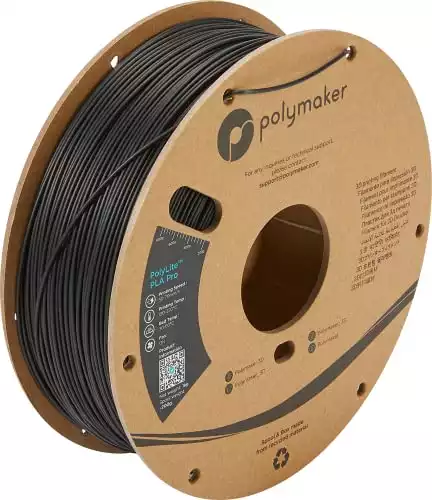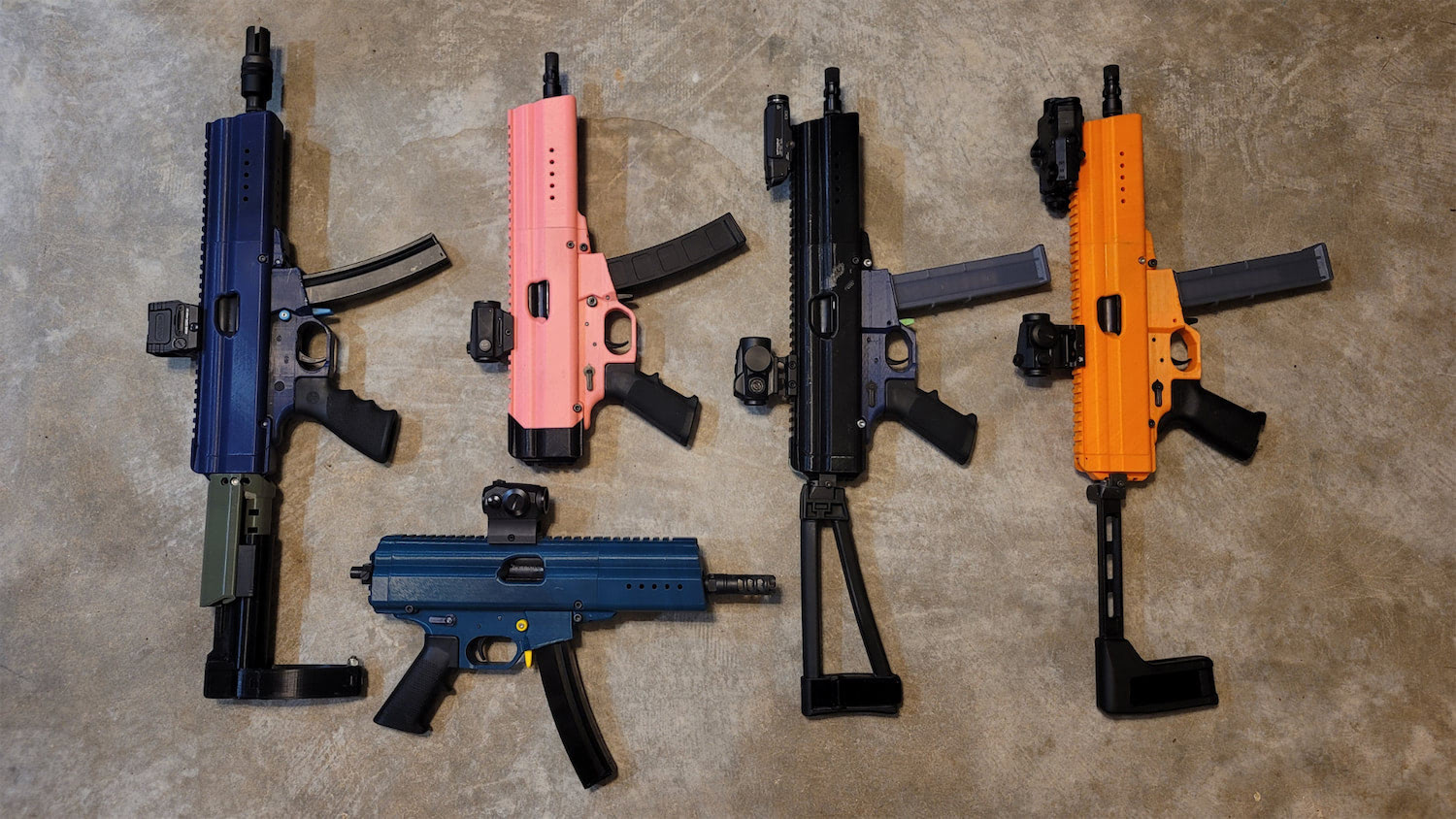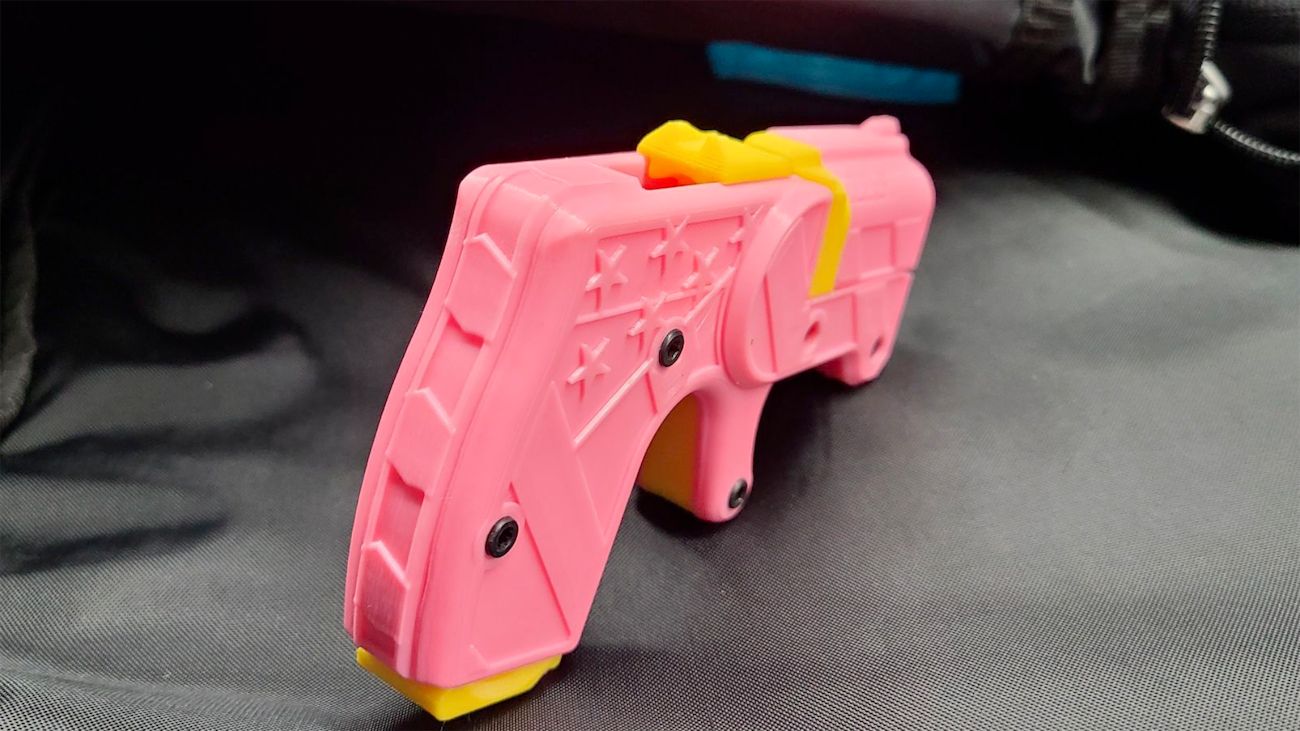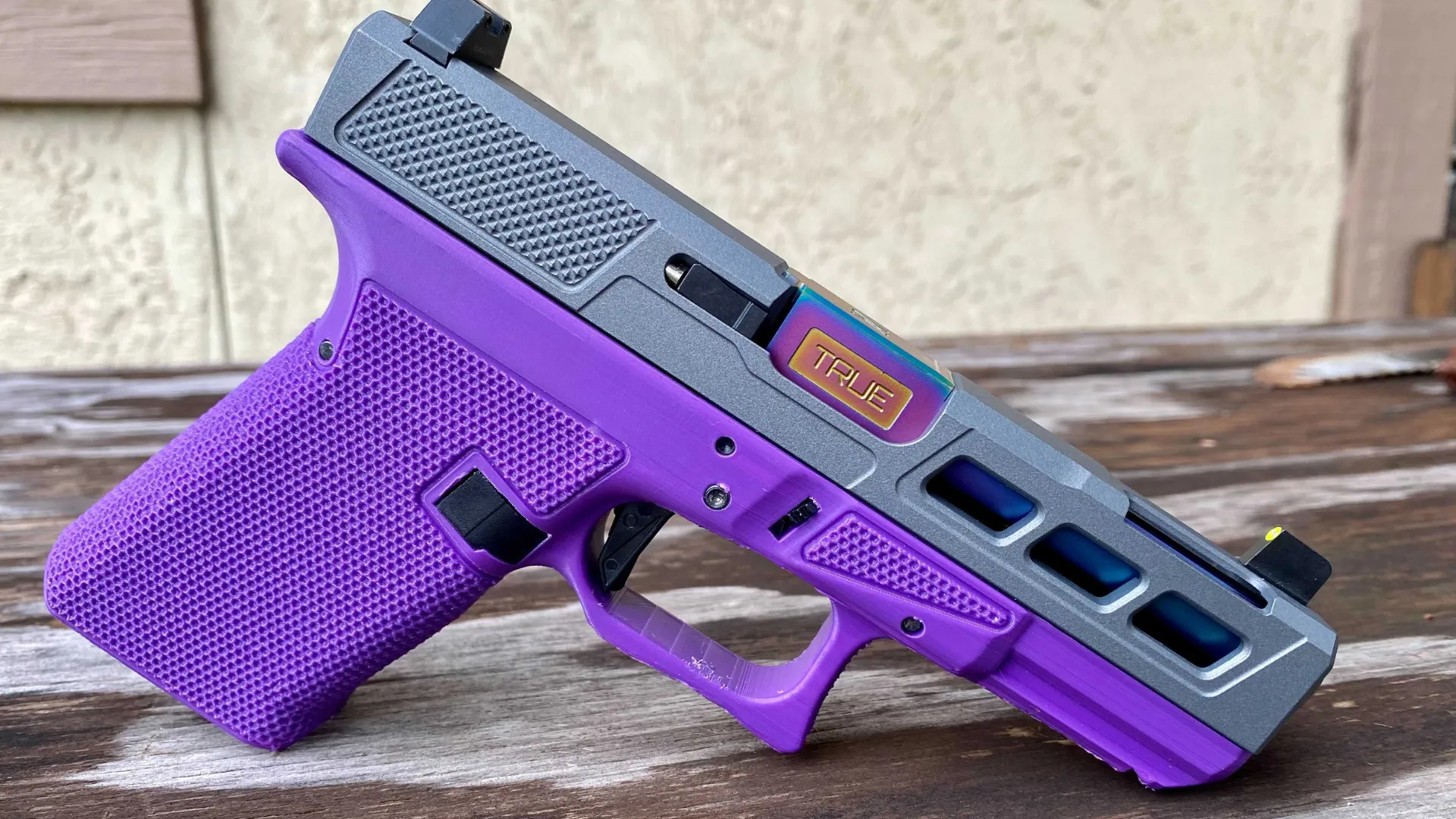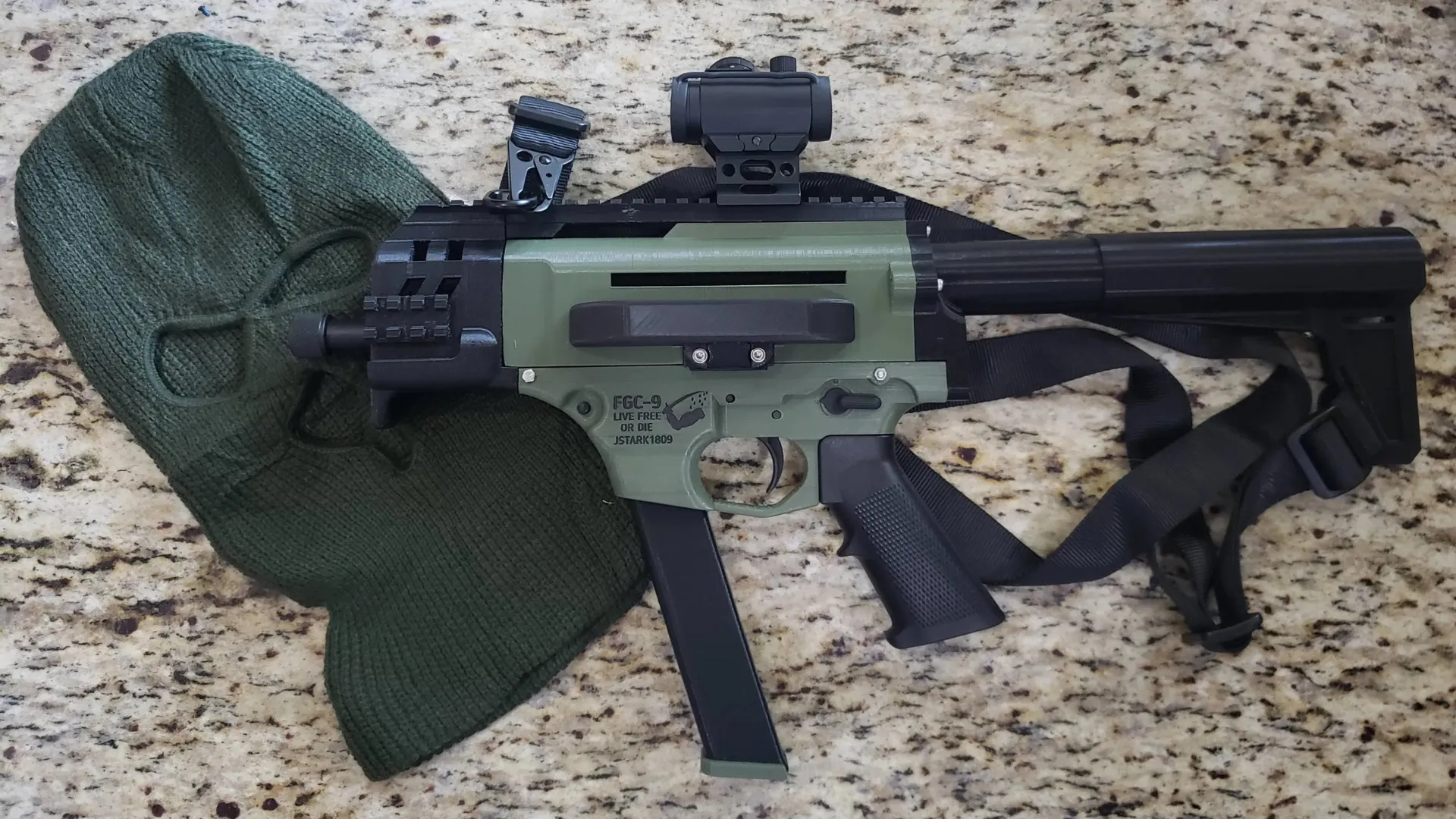So, your printer is built, bed leveled, and 3D gun .stl file sliced. It is now time to choose the strongest and highest quality 3D printing filament.
There are a wide variety of filament types, brands, colors, and evangelists when deciding on your filament of choice.

We break down the best 3D printer filament for guns and the brands we found to deliver the most consistent product time and time again.
Let’s get started.
Best Filament for 3D Printed Guns and Parts
Outside of more advanced 3d printing where more experienced 3D gun builders use Nylon and other more exotic filament types, there is one 3D gun filament that is the most widely used, PLA+.
PLA+ is the clear winner when it comes to the 3D firearm community.
What is PLA+ (Hint: The Perfect 3D Gun Filament)
PLA+ (PLA Plus) is a modified version of PLA (Polylactic Acid) filament that is designed to have improved strength and durability compared to standard PLA.

Some benefits of using PLA+ when 3D printing guns include:
Improved strength: PLA+ is stronger and less brittle than standard PLA, making it less likely to crack or break.
Better gun print quality: PLA+ has better layer adhesion, which results in smoother and more consistent prints.
Higher temperature resistance: PLA+ can withstand higher temperatures before deforming, which makes it suitable for printing objects that will be exposed to heat. This makes the filament perfect for shooting i.e. use in manufacturing 3D guns.
Easier to print: PLA+ has a wider temperature range and better flow properties, making it easier to print than some other materials.

When it comes to the best PLA+ 3D printer filaments for gun building, it’s important to consider factors such as filament diameter, print quality, and cost.
Best Filament for 3D Printed Guns
Some popular PLA+ filaments that have received positive reviews from users include:
Polymaker's 1.75mm filament is suggested for final and live-fire 3D gun prints. It is stronger than most standard PLA + and produces a solid end-product.
Other Filaments for 3D Printed Guns and Parts
A wide array of 3D printing filaments are available and have been used in the 3D printing of guns.
Several of these, however, are more difficult to print with successfully when it comes to firearm parts and frames then PLA+.
PLA+ truly has the upper hand with its excellent printability (easy for noobs) and strong durability (essential when exploiting projectiles aka bullets) are involved).
Nylon
Nylon filament is available in a range of different types, including Nylon 6, Nylon 6/6, Nylon 12, and more. Each type of Nylon has different properties and characteristics, but all Nylons generally offer good mechanical strength, toughness, and chemical resistance.

One of the benefits of Nylon filament for 3D printing is its ability to absorb moisture from the air, which can make it more flexible and easier to print with. However, it is important to store and handle Nylon filament carefully to prevent moisture absorption and ensure good print quality.
Nylon can be more difficult to print with due to its ability to absorb moisture and much more challenging layer adhesion.
When you are printing firearms adhesion and the ability for the guns frame to remain resistant to certain environmental variables is paramount to a successful gun print.
Polycarbonate
Polycarbonate (PC) is a strong, durable, and heat-resistant thermoplastic polymer material used in 3D printing.

It has high impact resistance, good transparency, and is often used for applications that require toughness, such as safety equipment, automotive parts, and electronic housings.
When used in 3D printing, polycarbonate filaments are typically stronger and more impact-resistant than other common materials like PLA or ABS, making them a popular choice for functional parts and prototypes. Polycarbonate is also able to withstand high temperatures, making it suitable for applications that require heat resistance.
However, polycarbonate filament can be more difficult to print with compared to other materials, as it requires higher temperatures and a heated build plate to prevent warping and cracking.
This makes Polycarbonate less than friendly for beginner 3D gun printers.
PETG
Is PETG good for guns? In short no.
PETG is a type of copolyester that is a member of the polyester family of polymers. It is made by combining PET (Polyethylene terephthalate) with glycol, which gives it additional flexibility and impact resistance compared to standard PET.

The resulting PETG material is a strong, lightweight, and transparent plastic that is resistant to impact, chemicals, and UV radiation.
However, the temperature tolerances and consistency with 3D printing in PETG make this type of filament poor for the application of guns.
Conclusion
There is not a major difference between a good filament for general use and the perfect 3D filament for 3D gun printing.
PLA+ is the clear winner with its excellent durability, heat resistance, and ease of producing quality 3D prints.
Ultimately, the best PLA+ filament for your needs will depend on your specific requirements and preferences, so it’s a good idea to do your own research and read reviews before making a purchase.
What is your favorite filament and brand when it comes to 3D printing guns? Let us know in the comments down below!


